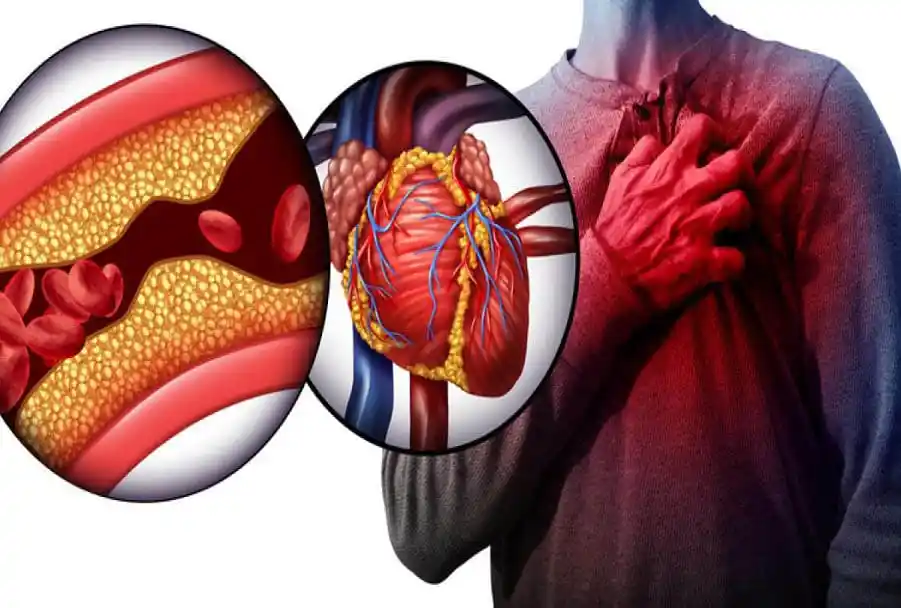In the vast tapestry of health challenges, few adversaries strike as swiftly and silently as a heart attack. It’s the stealth assailant, prowling the corridors of our arteries, waiting for a moment of vulnerability to pounce. But fear not, for within the labyrinth of symptoms lies our key to resilience. Imagine a global stage where heart disease commands the spotlight as the foremost threat to our well-being. Yet amidst this daunting panorama, there exists a beacon of hope – the power to decipher the signs of a heart attack. It’s akin to unraveling a cryptic code, where each subtle cue holds the promise of timely intervention and renewed vitality.
Consider it a race against time, with millions across the globe navigating the perilous waters of cardiovascular crises annually. But here’s the clincher: swift recognition isn’t just a matter of chance; it’s the linchpin that transforms the odds in our favor.
So, fellow voyagers on the voyage of well-being, let’s equip ourselves with knowledge, for within its folds lies our greatest armor. Embark with us on an expedition through the corridors of heart health, where we’ll uncover the secrets to safeguarding your most precious possession – your heart. It’s not merely about survival; it’s about thriving, empowered by the acumen to discern the signs of a heart attack and chart a course towards a future brimming with vitality.
Chest Discomfort:
The primary symptom of a heart attack is chest discomfort, which may manifest as pressure, tightness, squeezing, or a feeling of fullness. Even if the sensation is mild or intermittent, it should never be ignored, as it could indicate a serious cardiac event. Remember, every second counts in matters of heart health.
Pain or Discomfort in Other Areas:
While chest discomfort is prominent, a heart attack can also cause pain or discomfort in other parts of the upper body. Unexplained pain in the left arm, shoulders, neck, jaw, or upper abdomen, especially when accompanied by chest discomfort, requires immediate medical attention.
Shortness of Breath:
Suddenly feeling short of breath, even without physical exertion, can be a sign of a heart attack. This sensation may occur with or without chest discomfort. It’s essential not to dismiss unexplained breathlessness, as it could indicate compromised heart function. Your breath is crucial; pay attention to any changes.
Nausea or Lightheadedness:
Nausea, vomiting, or lightheadedness may accompany a heart attack, particularly in women. If experienced alongside chest discomfort or other symptoms, these signs should raise immediate concerns about cardiac health.
Cold Sweats:
Experiencing sudden, clammy sweats, especially when not related to external factors like heat or physical activity, can be a warning sign of a heart attack. Trust your instincts and seek help immediately if you experience these symptoms.
Fatigue or Weakness:
Unexplained fatigue or weakness, especially if severe or sudden, should not be ignored. Pay attention to your body’s signals and seek medical evaluation if you experience unexplained exhaustion. Your body is communicating with you; don’t ignore its signals for help.
Heart Palpitations:
Irregular heartbeats or palpitations may occur during a heart attack. Listen to your heart; it may be trying to convey something important.
Anxiety or Panic:
Feeling a sense of impending doom, extreme anxiety, or panic without a clear cause can be a subtle yet significant symptom of a heart attack. Trust your instincts and seek medical help if you experience profound anxiety unexpectedly. Your mind and body are interconnected; heed the signals they’re sending you.
Heart Health: Your Next Steps
Recognizing the early symptoms of a heart attack is crucial for prompt intervention and improved outcomes. From chest discomfort and pain in other areas to shortness of breath, nausea, and cold sweats, each sign serves as a critical indicator of potential cardiac distress. By staying informed and attuned to your body’s signals, you can take proactive steps to protect your heart health and seek urgent medical attention when necessary. Remember, in matters of the heart, every second counts. Stay vigilant, prioritize your heart health above all else, and take action today to safeguard your tomorrows.

